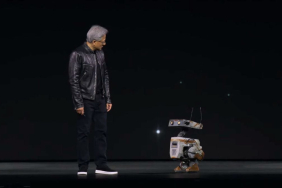On Tuesday, OpenAI introduced a new feature named Tasks for ChatGPT, enabling users to schedule reminders and actions within the AI chatbot. Currently available to paid subscribers of the platform, the company plans to extend this feature to free users later this year. This marks a significant movement towards enhancing the agent-like capabilities of ChatGPT.
OpenAI Introduces Tasks Feature for ChatGPT
OpenAI made the announcement regarding the Tasks feature through a series of posts on X, the platform formerly known as Twitter. Currently in beta, the feature is accessible to ChatGPT Plus, Teams, and Pro users, with plans for broader availability to free tier users later in the year. Notably, access to the Tasks page is limited to the web version of ChatGPT at this time.
The company aims to leverage the beta phase to gather insights on user interaction with the feature and to fine-tune its functionality before it becomes available to those on the free tier. It is also important to note that users cannot utilize the Advanced Voice Mode for task setting.
![]()
Tasks manager page in ChatGPT web
Photo Credit: OpenAI
The Tasks feature essentially functions as a scheduling tool. Users can either input a prompt directly or navigate to the Tasks page via the profile menu on ChatGPT’s web interface to create a new task. These tasks can be set as one-time reminders for specific dates and times or can be established as recurring events. Additionally, users can instruct the chatbot to execute a task at the appointed time.
This capability opens up avenues for various applications, such as receiving a daily news summary each morning or a motivational message just before a workout. By using natural language to set up tasks, users can specify instructions like, “Send me a summary of the biggest technology news of the day at 7:30 PM on weekdays,” allowing for easy scheduling.
While the scheduling aspect may not be particularly novel—given that many smartphone clock apps offer similar reminder functionalities—the ability for the AI to execute actions at a later time is a notable advancement. Although this does not equate to full agentic functionality, as the actions are confined to the chatbot platform, it does necessitate the AI’s ability to utilize memory and execute multi-step tasks, features generally associated with AI agents.
Speculation has surrounded OpenAI’s development of its first AI agent, informally referred to as Operator, and the introduction of the Tasks feature could signify a foundational step in that direction.






